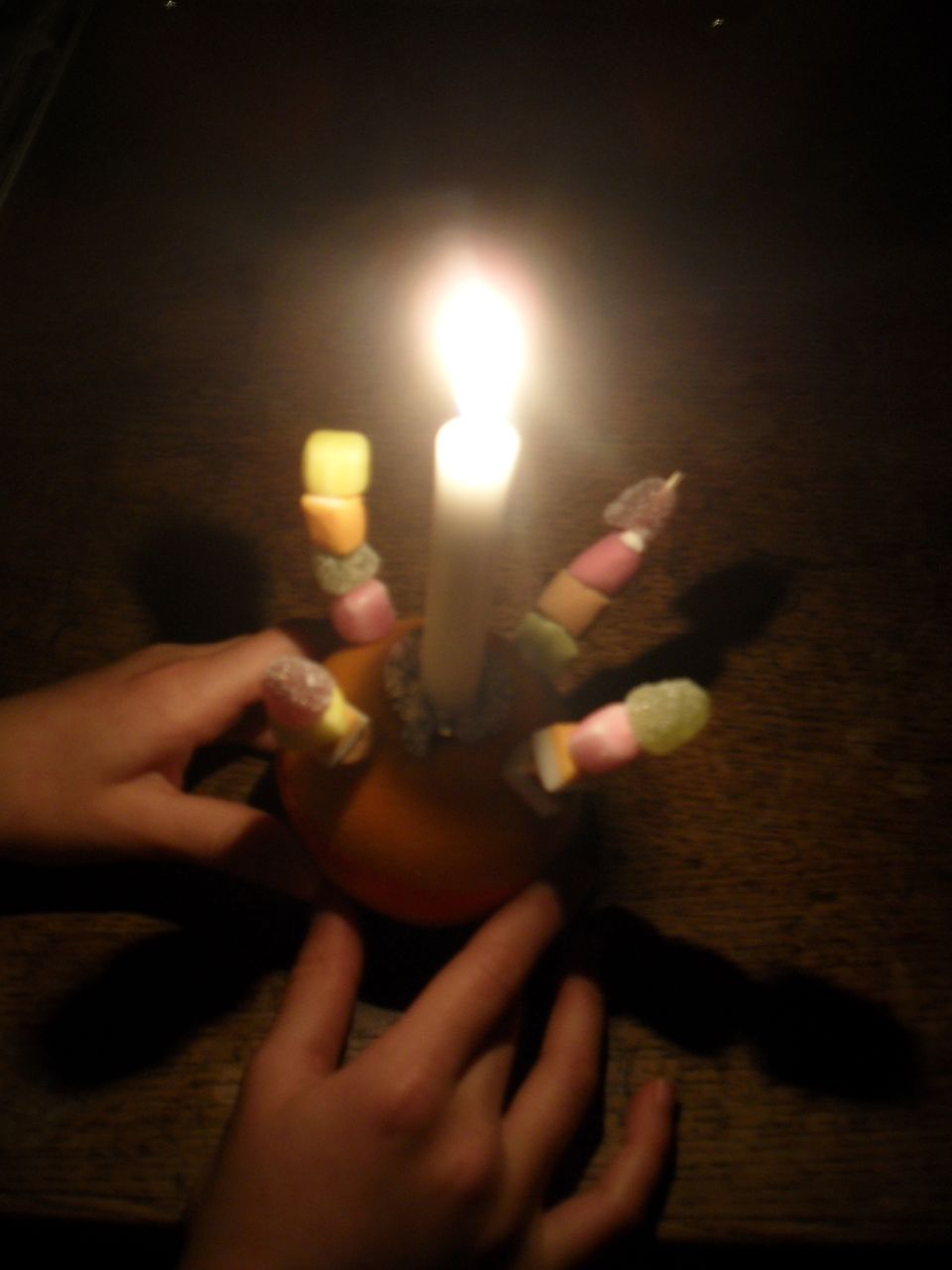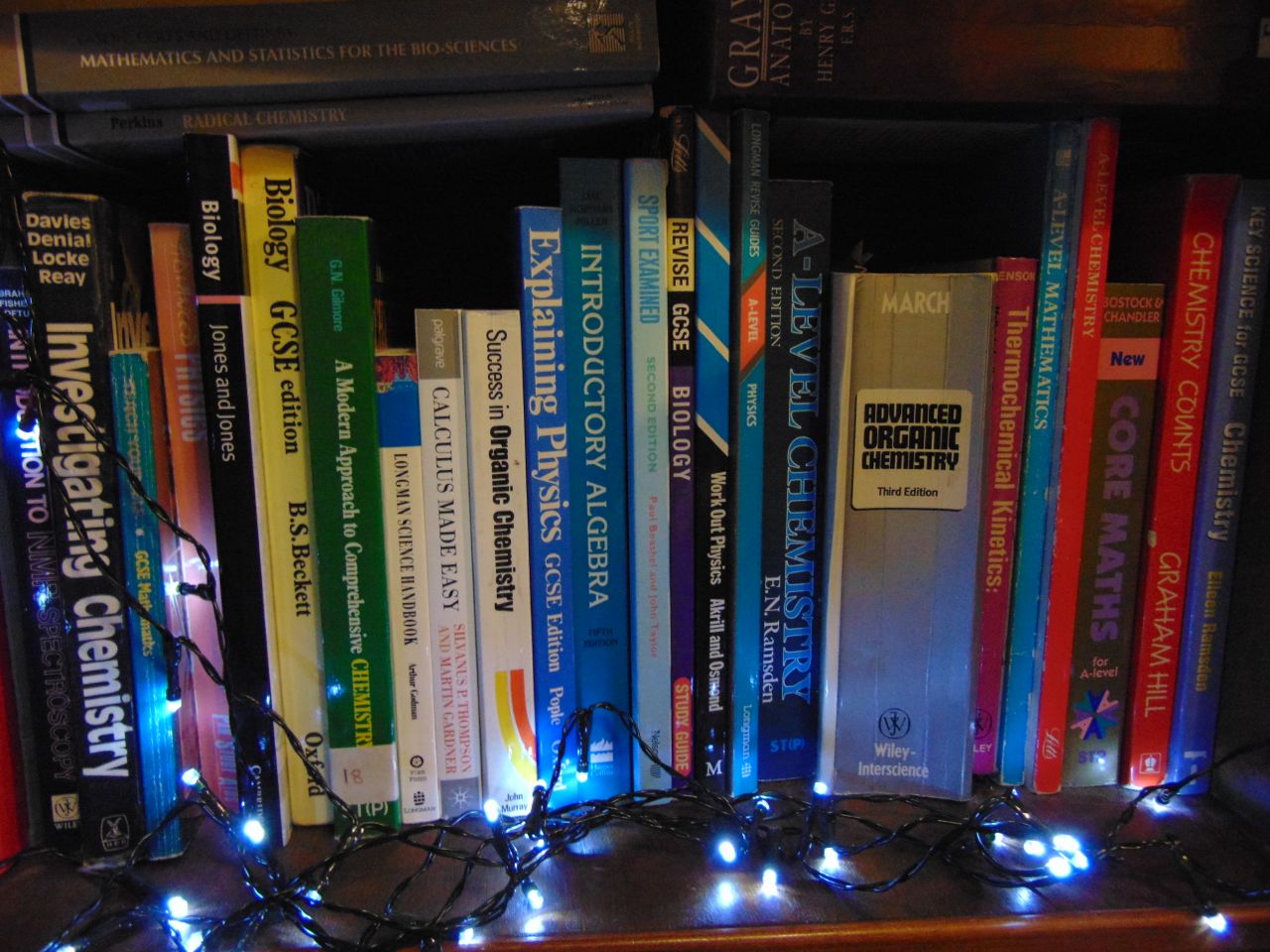Today, I am full of tears. I am hormonal, I am tired. A short story not being placed in a competition has made me feel low. Money worries are ever-present. My eldest daughter has been ill (though, thankfully she is on the mend). News of children suffering and dying in my Facebook feed has overwhelmed me. I feel useless and so very helpless. Today, I am full of tears.
Yet there is light all around me; achingly bright sunlight currently fills the room in which I am writing and ice-white fairy lights snake about the walls of our house. The tree in our lounge sports ribbons of multi-coloured LEDs. Candles sit around our nativity scene, keen to be lit. There is light within me (though darkness too). And I see light in others. And light calls to light.

2016 has been a year of darkness and much ugliness for so many. It is now more than ever that light is needed. It is interesting to me that light is so important to many (if not all) of the religions, and in pagan festivals too, light, in the form of the sun or moonlight or fire, is key. Storytellers, as well, know about the importance of light (think Lumos! in Harry Potter). It is a theme I explore often in my writing. Artists are the wielders of light. But in addition to creative and spiritual light (which I equate with love – and so something we no doubt need more of) there is also the light of reason. This is something the world desperately needs.
The Enlightenment… …was an intellectual movement which dominated the world of ideas in Europe in the 18th century. The Enlightenment included a range of ideas centered on reason as the primary source of authority and legitimacy, and came to advance ideals such as liberty, progress, tolerance, fraternity, constitutional government, and separation of church and state…
…The Enlightenment was marked by an emphasis on the scientific method and reductionism along with increased questioning of religious orthodoxy – an attitude captured by the phrase Sapere aude, “Dare to know”.
Daring to know the facts and statistics and hence outcomes about uncomfortable things like sexism, racism, climate change, government policy, neoliberalism, even something as (supposedly uncontroversial) as breastfeeding is difficult. If a journalist, celebrity or (lowly in the eyes of many) mother cites facts about breastfeeding: breastfeeding reduces the risk of vomiting and diarrhoea, SIDS, type 2 diabetes and obesity (to name a few) or to state it another way: formula feeding increases the risk of vomiting and diarrhoea, SIDS, type 2 diabetes and obesity (to name a few)… just wait for the outrage.
Yet these are facts. They cannot hurt us. But for some of us they can and do by causing cognitive dissonance; they turn our worldview upside down, they turn our comfy, cushy lives and perception of ourselves as ‘good’ people into something else entirely. They damage the shiny image we have of our ‘self’. And for some these facts are simply dull and they feel browbeaten by those who wield them. School has turned them off facts. And anyway, who doesn’t want to think of themselves as a ‘good’ person? One of the most difficult and yet enlightening conversations I had was with my husband this year as we talked through some of the stuff that had happened to us as a family this year. I did some hard self-reflection and found my behaviour to have been selfish and driven by selfish desires. Ow! There is nothing quite as searing (or purging) as examining one’s own ‘self’ and coming face to face with darkness.
Yet, there was also something liberating about this discovery. I am freer of self-deceit than I was before and in many ways this new knowledge allows me to give more energy and thought to positive things. It is a hard-won gift.
But the gift of knowledge, of self-awareness, is one that not many will want in their lives. For how much more easy it is to listen to lies on the news that tell us what we want to hear than to search out some evidence-based research. How much easier it is to vote for someone who appeals to the fear that they and their cronies have nurtured in us and our societies. How much easier it is to say that climate change can’t be happening because it’s all a made-up conspiracy. How much easier it is to think of ourselves as without fault, all issues and problems in our lives caused by others. How much easier it is to distract ourselves from life’s true joys and worries with fact-free click-bait; junk food of the soul, surely. How much easier it is to act like the herd mammals we really are and to go along with what everyone else is doing and saying.
In this age of post-truth, this age of outrage when the individual’s feelings trump everything else – you offended me, how dare you! the rallying cry of so many – we need to fall back on reason and the scientific method.

The age of enlightenment brought us so much. The scientific revolution followed soon after and so many of our advances in technology and medicine etc. come as a direct result of these two movements. It is the reason for the Cancer Act of 1939, which basically stops conmen and conwomen from pushing “cures” which don’t cure on cancer patients. (This Act is something I had to make someone aware of recently.) The age of enlightenment is the reason behind so much of the advantages and good stuff us wealthy-enough westerners get to enjoy. But as Sophie rightly pointed out in this blog post, sometimes (with a view to ‘equal debate’) there comes about a false balance as journalists and those in the media have allowed those without any facts and extreme views a platform. And closer to home, we allow ourselves and our friends and loved ones their own lies and myths.* We have done a disservice to those who brought about this age of enlightenment and our society too by letting lies abound.
We desperately need another age of enlightenment. I don’t know if or how or when it will come about. But I hope it does come about, and soon. But I am sure that we all have our role to play in helping it come about. Some of us can and will do more than others. But sometimes all it requires of us is the very act of questioning, ourselves and others. We need to ask these questions:
- Why do you/I believe this?
- What is the evidence?
- How does this work?
- And of course: What can I/you do to change this?
And especially, we need to nurture our children’s natural curiosity and encourage them to keep on asking: Why?
In 2017 I will be challenging myself to ask more of these questions.
* Communicating in an empathic fashion while making others aware of untruths is something I definitely want to explore in a future post.
Thank you again to Maddy for all her continued hard work throughout 2016 in making the What I’m Writing link-up so wonderful. 🙂

It really does feel like we’re drifting further from enlightenment at the moment. Not just drifting, in fact, but galloping or being dragged half the time. I agree self-reflection and admitting when we’re wrong can be painful but so important. It’s so much easier to stay in our bubbles, and social media seems to be imbedding us further within them. Ah, there’s a really meaty discussion to be had here which needs to be done in person over a glass of wine – here’s hoping we get to meet up in 2017! Thanks for all your support for #WhatImWriting this year and for the advice along the way.
Sorry for the late reply, but thanks for your comment Maddy. It would be great to have a meaty discussion about this over a glass of wine, wouldn’t it? Perhaps it might happen in 2017? Anyway, wishing you all the best for the new year. 🙂
This is a post for our times. I share your feelings on these matters. Here’s hoping for illumination and enlightenment in 2017 and the years ahead. xxx
Thank you very much Cathy (and sorry for the late reply). Yes, let’s hope and strive for illumination and enlightenment in 2017. Wishing you all the best for the new year ahead. xxx
I do think personal circumstances influence opinions, such as where you live, how you were raised etc. But, if we were all just a little kinder to one another the world could be a better place.
There is so much to get upset about in this world of ours I have to admit to having to block some of it out at times. I do what I can and just have to have the hope that others will too.
We have to look for the light and not let the darkness win.
Hope you are ok, my dear? Take care xx
You’re right Janey. Personal circumstances and experiences influence our opinions a huge amount, but as you say, if we can only all be a little kinder to one another the world could and would be a better place. And like you, I have to step away from social media/the news from time to time too. It can all get too overwhelming.
Thankfully, I’m feeling okay at the moment and I’m going to try to keep (cautiously) optimistic about what will happen in the world in 2017. Wishing you all the best for 2017. xx
My school motto was ‘sapere aude’, only I never felt it was a particularly enlightened place, ho hum. Reducing things down to science though ignores emotional aspects of anything, which there is always some influence. That question ‘why do you believe this?’ will always have the most telling response. I agree it is uncomfortable to challenge ourselves with these questions but it is definitely the route to a more enlightened state. And then we just have to figure out how to get others to reflect as well… Happy New Year Marija xx
Hi Alice, good to hear from you. 🙂 I like the sound of your school motto, ‘Dare to know’. Wasn’t it the rallying cry of the enlightenment too? I agree that reducing things down to science ignores the emotional aspects (and emotions can provide us with a lot of useful information) so I think a balance has to be struck. But with the current state of politics and society configured as it is at the moment we definitely need a swing back to science and away from wild emotional responses. The Leave campaign’s awful lies as well as the ‘breaking point’ poster were deplorable and only served one thing: to play on people’s emotions and fear.
Anyway, on that cheery note I’ll wish you all the very best for 2017. xx
Pingback: The Power of Humour « Marija Smits
Pingback: Women in Science « Marija Smits